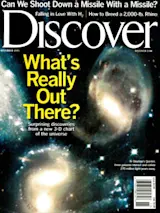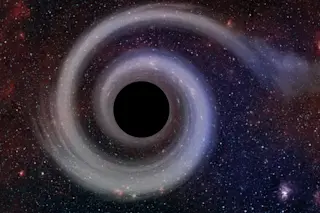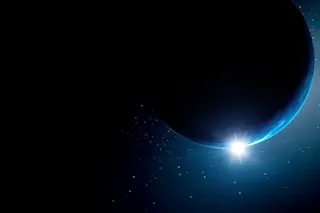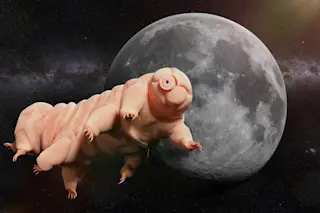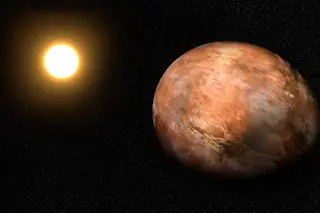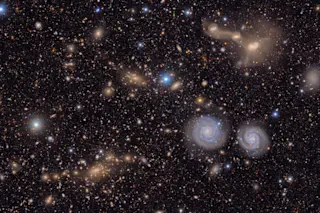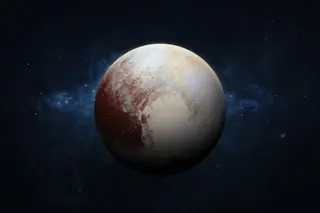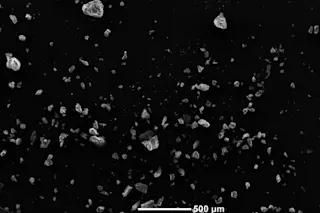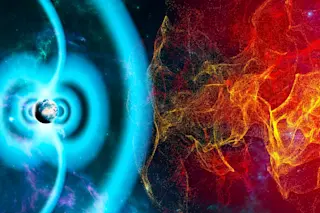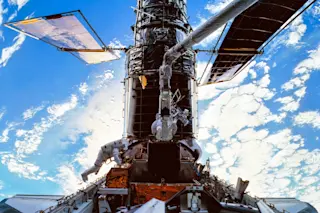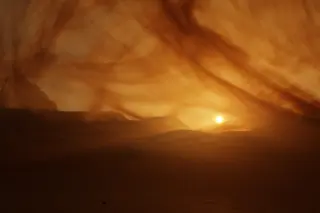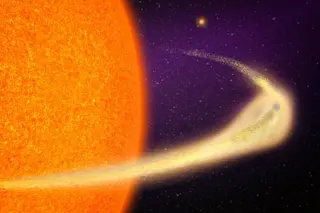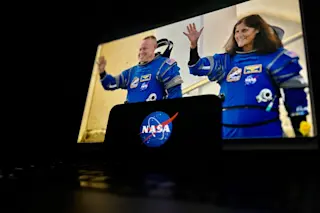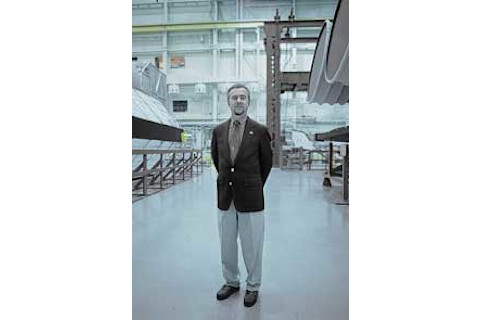
Photograph by Brent Humphreys From the day Ronald Reagan proposed the International Space Station in 1984, it has sparked controversy. The House of Representatives nearly cut off funding in 1993; numerous scientists and scientific societies have denounced it as little more than a jobs program. But the station survived and has recently begun hosting regular crews and experiments. Originally trained as a life scientist, John Uri of NASA's Johnson Space Center has the daunting assignment of managing scientific research on the station, making sure it delivers on its grand promises. He offered an early assessment to Discover reporter Jocelyn Selim.
The $93 billion dollar question: Why do we need a space station? Microgravity changes everything--whether we're talking about a hemispheric candle flame, a tissue culture growing in three dimensions, or genes being expressed differently--and there is no way to replicate microgravity on Earth. What we find could help us understand how to refuel a space vehicle or how to fight cancer. We can't predict what we're going to learn. If we could, we wouldn't have to do it.
Have there been difficulties working with the Russians? The big problem is budgetary. They get less money and compensate with commercial ventures. It makes their priorities a bit different, and they do things that perhaps we wouldn't consider, like flying that tourist up last May.
So you consider commercial involvement a bad idea? Actually, I think it will help the space program. The settlement of North America didn't get well established until a solid commercial product was found. Unfortunately that product was tobacco, but it really kicked off the whole settlement process. When we figure out which products are most commercially viable--we're looking at semiconductors that can be made only in microgravity--they may generate enough revenue to keep the station going.
What are the most important scientific returns so far? It's still early, but we're learning interesting things about human physiology. When you take away gravity, you see muscle loss, lowered bone density, cardiovascular deconditioning, reduced renal efficiency. You become like a couch potato. We've also just retrieved the "phantom torso," material that mimics human tissues, so that we can see how radiation affects the body.
What if the dazzling results never arrive--then what good is the station? From the moment the first crew launched last October, there should always be somebody living in space. I think a hundred years from now somebody will write in history books, "That's the day that the human race left the planet." I'm not sure we can fully appreciate it until we can look back and see what we've done with that first step, after we've moved out from low- Earth orbit and on to other places.
How soon could that happen? I would say 10 or 15 years, but a lot of factors need to come together--politics, money, the will of the people. I think there's a desire out there. Look at the popularity of Star Trek and the Star Wars movies. But I don't know if our government is set up to sustain a long-term program.
Part of the appeal of Star Trek is the utopian vision of everyone working together in the Federation. Can we ever achieve that?
Well, in a small sense that's what we're already doing. We've got 16 nations working together to build the station. By extension, yes, it is a fairly easy step to add more nations and begin building bigger things.


